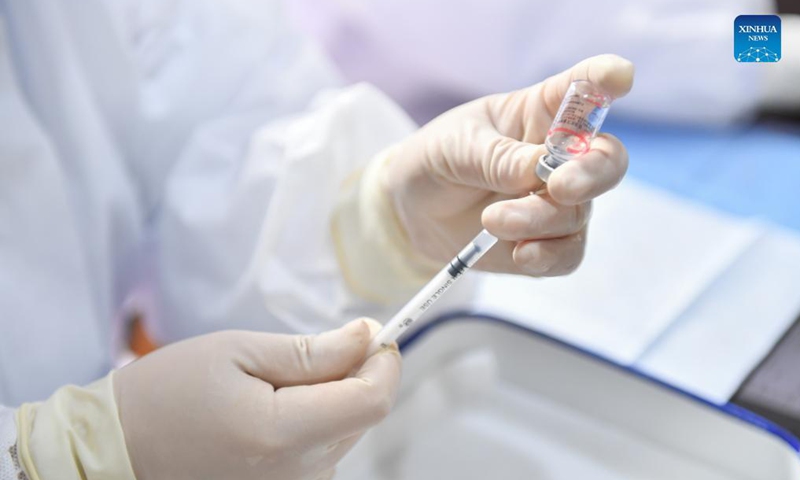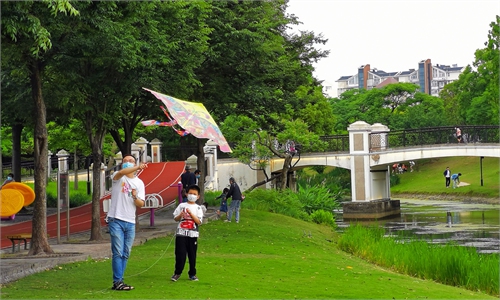'Fourth dose' or combination vaccine being evaluated in China: Gao Fu, head of the Chinese CDC

A medical worker prepares a booster shot of the COVID-19 vaccine at a community service center in Tianxin district of Changsha, Central China's Hunan Province, October 26, 2021. Photo:Xinhua
In a live online interview on Sunday, Gao Fu, head of the Chinese Center for Disease Control and Prevention (CDC), noted that vaccine upgrading is the next step in the world's scientific response to COVID-19. It is still under evaluation whether China will launch a 'fourth dose' of the vaccine or promote mixing injections, he said.
With the current mutation of the virus and breakthrough infections in the population, vaccine upgrading is one of the next steps against the COVID-19, Gao said.
Both Sinopharm and Sinovac have new inactivated vaccines for the Omicron variant in clinical trials, Gao noted, and his team's recombinant protein vaccine, ZF2001, is in intensive development with some data already published.
Earlier, Zhifei Longcom, the manufacturer of the ZF2001 vaccine, released encouraging data showing that the shot is 75.7 percent effective against symptomatic and 87.6 percent effective against severe-to-critical COVID-19 cases for six months following full vaccination.
Drug research is also the next focus for infectious disease control, Gao said.
"In addition to biopharmaceuticals and small molecule drugs, we have found some components in Traditional Chinese Medicine that can inhibit the COVID-19 virus," he said, noting that related drugs are also being studied.
For the current situation in China, vigorous promotion of vaccination is necessary especially for those who have not yet been vaccinated and should complete their basic immunization, Gao said.
As for the need for a "fourth dose" after the booster shot already administered, it is still being evaluated in China, he said.
When asked if China's next step would be to promote the administration of mixed vaccines among the public, the CDC expert noted that the most important thing is continued vaccination, not the type of vaccine.
"There are some people who misunderstand the concept of 'sequential vaccination,'" he said, adding that "because of misleading translation, many people think sequential vaccination means that different types and technical routes of vaccines need to be mixed. In fact, the term primarily emphasizes continuous vaccination."
But Gao also stressed that previous scientific studies have proven that mixing vaccines of different technical routes has a positive effect on human immunity.
"One vaccination against the same disease and a second vaccination with a different technical route has been validated as very effective in previous epidemiological studies," Gao said, noting that for COVID-19, this is also an option worth considering.
Gao emphasized that prevention and control of the epidemic is not just a scientific issue, but a comprehensive social issue.
"Public health and science can only give us some basic things, and it is a big project at this point with all the efforts from all sides requiring administrative decisions and grassroot implementation," Gao mentioned.
In the crisis of the COVID-19 pandemic, we drew on the knowledge of the past to develop science which also gives the world the opportunity to further delve in the underdeveloped field, Gao noted, remarking that "through the science and technology that was developed in this period, new solutions for some diseases may be brought to the world in the future."


